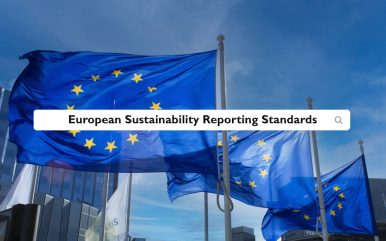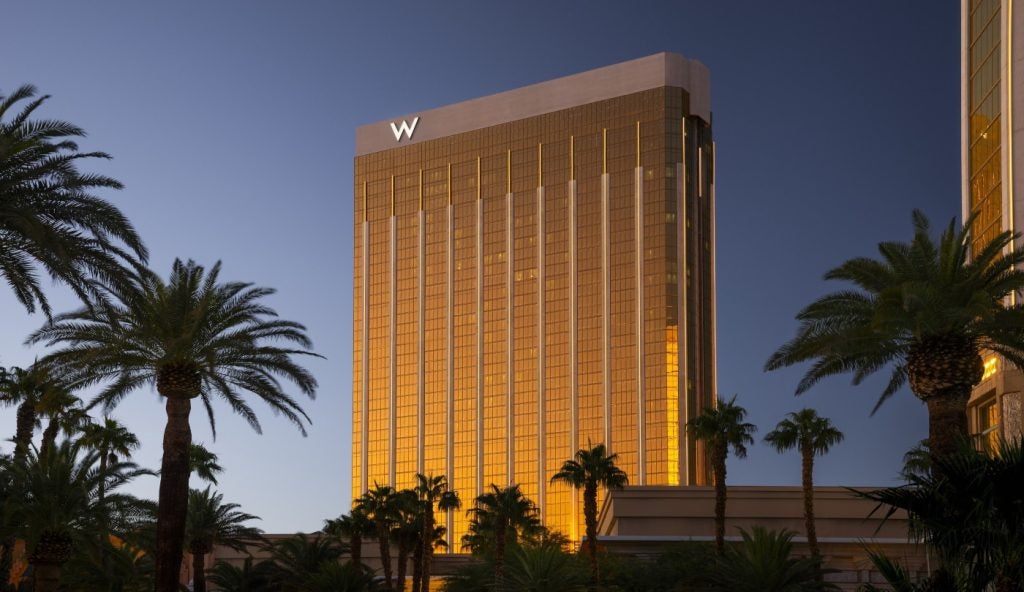
Europe is paving the way on sustainability reporting and will influence other regions, BeCause chief sustainability officer (CSO) Alina Arnelle has told Hotel Management Network.
BeCause is a SaaS [software as a service] company focused on sustainability management and data automation. Its clients include sustainability-certified hotels such as Radisson, certification entities such as GreenKey, and marketplaces such as Booking.com.
Hotel Management Network’s conversation with Arnelle follows the European Union’s inauguration of the Corporate Sustainability Reporting Directive (CSRD) at the beginning of 2024. The directive aims to modernise and strengthen the rules concerning the social and environmental information that companies must now report.
GlobalData asserts that this is a step in the right direction for a sustainable EU economy in the “ESG [environmental, social and governance] 2.0 era“.
Like other industries, hotels in Europe will be assessed on their impact on people and the environment. Investors can assess the financial risks and opportunities arising from climate change and other sustainability issues.
Arnelle, who is responsible for devising BeCause’s strategy to incorporate the latest sustainability trends and relevant industry-specific developments, notes that the CSRD is the first of its kind in the world and will help hoteliers drill deeper into the sustainability data landscape.
How well do you really know your competitors?
Access the most comprehensive Company Profiles on the market, powered by GlobalData. Save hours of research. Gain competitive edge.

Thank you!
Your download email will arrive shortly
Not ready to buy yet? Download a free sample
We are confident about the unique quality of our Company Profiles. However, we want you to make the most beneficial decision for your business, so we offer a free sample that you can download by submitting the below form
By GlobalData“From the European perspective, hotels of all sizes will be forced to report on their ESG progress. It will not just be a “good to have” but a “must do”. I believe that the rest of the world will also follow them because again, they will want to keep that competitive advantage with Europe.”
Starting small with sustainability reporting
It is no longer enough to have an ESG strategy focused on reporting and setting targets for some distant future date. Hoteliers need to show that they are already taking action on ESG issues across their value chain.
Arnelle’s advice for hoteliers who are unsure about how to begin the seemingly mammoth task of gathering data for ESG reports is to start small.
“I would start with understanding the compliance necessities and disclosure requirements, alongside performing a level materiality analysis. Once I have identified the topics to work with, I would look at who holds this data within my company. Then I would proceed with informing all of my connected data providers so they have the same level of awareness.”
Arnelle emphasises that without increased understanding of knowledge collection, there will be no data quality from which to build reports.
Even if software programmes remain out of reach in the early stages, hoteliers can work from Excel spreadsheets to begin collecting data manually to send to main co-ordinators. From there, reports can be created using narrative, semi-narrative and numerical data.
Transparency in sustainability data
Once data collection is set up, hoteliers must ensure its accuracy and be unafraid to take accountability for their company’s entire value chain.
Arnelle confirms that hoteliers must understand every detail, from who their suppliers and logistics providers are to proof of purchasing agreements.
“Chain of custody will be something that will come into force globally. Providing transparency with proof is something that will take any kind of business, especially in the tourism industry, to the next level.”
Ultimately, sustainability should be integrated holistically into the entirety of a hotel organisation.
“I believe the point of sustainability is that it is multidisciplinary and interconnected. So, every key aspect of the hotel and value chain must understand why something is being asked of them,” Arnelle states.
There will be increasing pressure from stakeholders, regulatory bodies and consumers for the availability of transparent sustainability data from hotels.
Certifications play a central role in communicating a hotel’s sustainable status to guests. But Arnelle identifies a problem in the sheer amount of certifications that are available, since this can cause a loss of trust in their valuation.
“It’s important for hotels to understand what labels they choose to acquire, not just for a stamp of approval. Certifications should be approved by official bodies as this shows they are applied within the whole industry. This supports comparability and brand value and helps identify gaps in sustainability performance.”
Technology gaps in sustainability reporting
A recent report by the World Travel and Tourism Council and Microsoft highlighted that the travel and tourism sector is lagging behind other consumer-facing industries in AI adoption.
This sounds alarm bells for sustainability reporting, which – if it is to be comprehensive – requires machine learning and readability for comparisons of data points across nations, verticals and companies.
Arnelle highlights the lack of central management planning and collaboration in sustainability reporting.
“Everyone is trying to create their own system because governments are not moving fast enough. So, the different systems do not talk to each other and share data, meaning there is more manual work, which takes forever.”
Hotel brands that have got sustainability reporting right in Arnelle’s view include smaller players like Scandic Hotels and Iberostar, and leaders such as Radisson and Marriott, both of which have centralised their sustainability management.
Radisson global senior director of sustainability Sven Wiltink explains: “Radisson Hotel Group’s pathway to net-positive hospitality requires a co-ordinated approach for data collection, analysis, verification and sharing.”
No matter their operational size, hotels must get on board with the ESG 2.0 era. As Arnelle concludes: “Time is of the essence in this fast world with scarce resources, so there’s no time to wait.”






